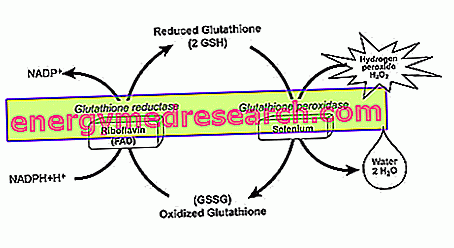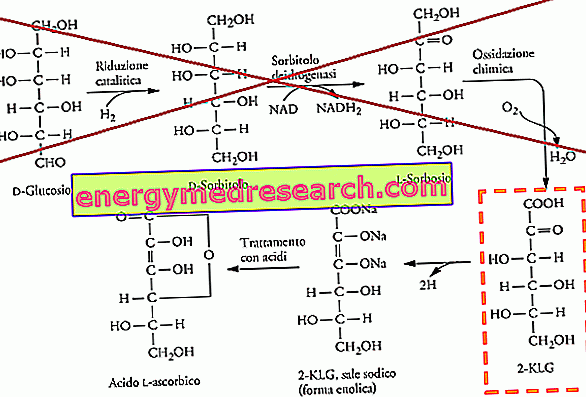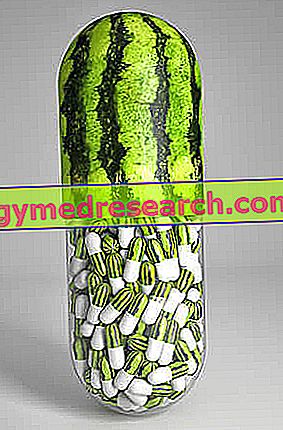Iodine alone is not enough
Speaking of the diet-thyroid relationship, the first thought is for iodine, a mineral essential for the functionality of this gland as a structural component of thyroid hormones. Thus, without iodine, the thyroid could not produce its own hormones.
Another mineral that is particularly important for the metabolism of thyroid hormones is selenium, mainly known for its antioxidant function. It is in fact an integral part of glutathione peroxidase, one of the most important endogenous weapons against free radicals, in other words a precious bulwark in defense of the vital components of the cell against oxidative stress.
For this action, selenium is more or less correctly recommended for the possible anti-aging, anti-tumor and protective properties against cardiovascular diseases of atherosclerotic origin. Few, however, know the importance of selenium for proper thyroid function. This relatively recent scientific evidence is based on the discovery of the role of selenium in the conversion of T4 (thyroxine) to T3 (triiodothyronine).
Selenium and T3 synthesis from T4
T4 and T3 are the abbreviations used to indicate the two hormones produced by the thyroid, in reference to the number of iodine atoms present in their structure.
Among these, triiodothyronine - despite being poorer in iodine - is much more biologically active than thyroxine.
Therefore, since selenium - in the form of seleniocysteine - is an integral part of the desiodases that catalyze at various levels the conversion of T4 into T3, adequate availability of this mineral is essential for proper thyroid function.

Deficiency of Selenium
There are studies that warn against the danger of possible joint deficiencies of iodine and selenium, not only in the development and maintenance of hypothyroidism, but also in autoimmune thyroid diseases (autoimmune thyroiditis).
The biological bases of these effects are attributable both to the participation of selenium in the metabolism of thyroid hormones, and to its antioxidant and antiradical action, which is valuable for counteracting inflammatory phenomena related to many diseases of well-being. Not surprisingly, the activity of glutathione peroxidase is also fundamental at thyroid level, where it neutralizes the cytotoxic effects of hydrogen peroxide (H 2 O 2 ) produced as a cofactor of the synthesis of thyroid hormones.

Foods rich in Selenium
Foods rich in selenium include fish and seafood, offal, cereals, dried fruit, brewer's yeast and vegetables (especially broccoli, cabbage, cucumbers, garlic, onions).
The selenium content in plant foods is however proportional to the concentration of the mineral in the soil, therefore extremely variable from one region to another in the world.



